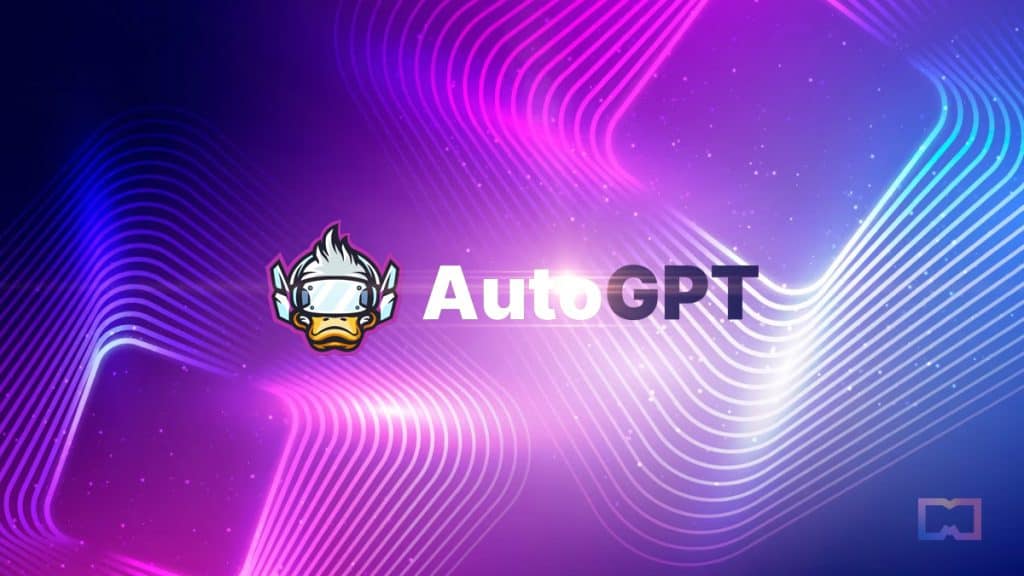What Makes AutoGPT So Special?

In Brief
AutoGPT is a tool that leverages the power of GPT-4 to create an AI agent capable of functioning independently without user intervention.
AutoGPT combines GPT-3.5 and GPT-4 via API, allowing projects to improve and build upon their iterations.

In recent weeks, there has been a lot of buzz surrounding the release of GPT-4 and updates to ChatGPT, as well as concerns surrounding GPT-5 and AGI. Meanwhile, another tool has been making waves in the AI community: AutoGPT. While some may have mistaken it for just another GPT plugin, AutoGPT combines GPT-3.5 and GPT-4 via API, allowing projects to improve and build upon their iterations.
AutoGPT is a Python application that leverages the power of GPT-4 to create an AI agent that can function independently without requiring user prompts for each action. This means AutoGPT can perform tasks, such as scheduling an Instagram post and writing a relevant caption without any manual intervention.
In addition, the experimental AI system can respond to customer queries or complaints in any language required on an external site. This level of autonomy sets AutoGPT apart from other chatbots and AI tools, making it a powerful addition to any developer’s toolkit. The program was recently shared on GitHub by a developer named Significant Gravitas, and its potential applications are vast.
Where Can AutoGPT Be Used?
The AI system can recursively debug, develop, and self-improve, thanks to a feedback loop that uses plan, criticize, act, read feedback, and plan again. AutoGPT is free and open-source, and it can be used for various tasks like finding unclaimed money, growing social media accounts, and developing e-commerce businesses by scraping the web and autonomously working toward achieving set goals. AutoGPT’s ability to search the internet and perform actions, such as saving files without user guidance, distinguishes it the most from traditional chatbots.
To illustrate more of its capabilities, AI expert Rowan Cheung shared some examples in a tweet: AutoGPT can create a “Do anything machine,” which spawns a GPT-4 agent to complete any task added to the task list. It can read recent events and prepare an entire podcast outline, making it a great “podcast prepper.” Finally, AutoGPT enables the creation of an “AgentGPT,” where an AI agent is given a goal, and it thinks, comes up with an execution plan, and takes action. Lastly, it can recognize a missing tool, such as Node, find the exact steps to install it, and perform the installation.
According to KDnuggets, to use AutoGPT, you need to have Python 3.8 or a later version, access to the OpenAI and GPT-4 APIs, a PINECONE API key, and ElevenLabs API for text-to-speech projects. AutoGPT requires user permission after every prompt, which necessitates extensive testing.
Read more:
Disclaimer
In line with the Trust Project guidelines, please note that the information provided on this page is not intended to be and should not be interpreted as legal, tax, investment, financial, or any other form of advice. It is important to only invest what you can afford to lose and to seek independent financial advice if you have any doubts. For further information, we suggest referring to the terms and conditions as well as the help and support pages provided by the issuer or advertiser. MetaversePost is committed to accurate, unbiased reporting, but market conditions are subject to change without notice.
About The Author
Agne is a journalist who covers the latest trends and developments in the metaverse, AI, and Web3 industries for the Metaverse Post. Her passion for storytelling has led her to conduct numerous interviews with experts in these fields, always seeking to uncover exciting and engaging stories. Agne holds a Bachelor’s degree in literature and has an extensive background in writing about a wide range of topics including travel, art, and culture. She has also volunteered as an editor for the animal rights organization, where she helped raise awareness about animal welfare issues. Contact her on agnec@mpost.io.
More articles

Agne is a journalist who covers the latest trends and developments in the metaverse, AI, and Web3 industries for the Metaverse Post. Her passion for storytelling has led her to conduct numerous interviews with experts in these fields, always seeking to uncover exciting and engaging stories. Agne holds a Bachelor’s degree in literature and has an extensive background in writing about a wide range of topics including travel, art, and culture. She has also volunteered as an editor for the animal rights organization, where she helped raise awareness about animal welfare issues. Contact her on agnec@mpost.io.






















































